#68 Gregory B. Sadler | Self-Directed Learning in Philosophy: Bridging Ancient and Modern Wisdom
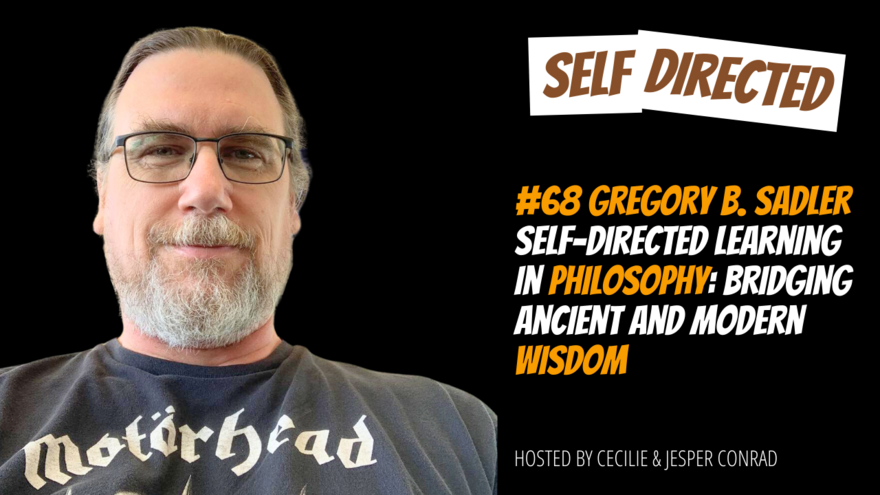
🗓️ Recorded April 16th, 2024. 📍Belton, Missouri, United States
Click here to embed this episode on your website
Where do you want to listen?
|
|
|||
About this Episode
Gregory B. Sadler has taught and designed Philosophy, Humanities, Religious Studies, Literature, and Critical Thinking courses for over 20 years.
Jesper became interested in Greg's work when he searched for Self-Directed Learning and, by chance, found Greg's YouTube channel dedicated to self-directed learning in Philosophy.
Greg Sadler brings a fresh perspective to our lively discussion on how ancient wisdom parallels modern self-help and the ever-evolving education journey. We peel back the layers of philosophy's public image, addressing stereotypes and the ironic complexities of communication within the field. Greg
Our conversation takes a turn through the less-traveled paths of self-education in philosophy, guiding those embarking on their intellectual quests. We debunk the solitary philosopher's myth, revealing the discipline's communal nature and its relevance to contemporary life. Whether you're a seasoned philosopher or a curious newcomer, Greg offers insights into navigating the works of Plato and Nietzsche and the approachability of online resources like his 'Half Hour Hegel' series, which offers companionship in the sometimes lonely pursuit of knowledge.
As we wrap up our philosophical exploration, literature's profound impact on us stands out. Together with Greg, we reflect on how our understanding of texts like 'The Great Gatsby' or Nietzsche's works evolves.
▬ Connect with Gregory B. Sadler ▬
ReasonIO - https://reasonio.wordpress.com/
YouTube channel – https://www.youtube.com/user/gbisadler
Sadler’s Lectures podcast - https://soundcloud.com/gregorybsadler
Facebook author page – https://www.facebook.com/drgbsadler
Twitter profile – https://twitter.com/philosopher70
Patreon site – https://www.patreon.com/sadler
Substack - https://gregorybsadler.substack.com/
▬ Watch the full interview on YouTube ▬
Copy the code below to embed this episode on your website.
<div id="buzzsprout-player-14837521"></div><script src="https://www.buzzsprout.com/2103333/14837521-68-gregory-b-sadler.js?container_id=buzzsprout-player-14837521&player=small" type="text/javascript" charset="utf-8"></script>
4 WAYS YOU CAN SUPPORT OUR PODCAST!
With love

Jesper Conrad
AUTOGENERATED TRANSCRIPT
00:00 - Jesper Conrad (Host)
Welcome to Self-Directed. We are your hosts, cecilia and Jesper Conrad, and now it's time to welcome this week's guest. Today, we're together with Greg Sadler, and first of all, welcome, greg Wonderful to have you here.
00:17
Thanks for having me on. The reason why I decided to invite you on is because my mind is wonderfully stupid. So I was searching for self-directed learning and I ended up on your YouTube channel called Self-Directed. And then, as simple as I am, I'm like hey man, I like philosophy and we're talking about self-directed learning. He's talking about self-directed learning in philosophy. Let's have a chat. So here we are, greg, when I went to high school, all the philosophy dudes they kind of looked like you, but without the beard, you know. Yeah, they had the long hair, a little nerdy, and I don't know if it was me being kind of jealous on them. So studying philosophy has this air of aha, I'm clever and I don't know if it's a stereotype or if it's envious.
01:16
So what is your take on this?
01:17 - Gregory B. Sadler (Guest)
if we can start there, Well, that's actually a funny question, you know. I think it varies from place to place, right? So in a lot of European countries you could actually study philosophy in high school, whereas for us that's kind of an oddity, right? It's usually only after you get to college and maybe you get lucky and you get a good instructor. Philosophy people are like all over the map. There's a lot of weirdos in philosophy, not that there aren't in other academic disciplines. You know, literature teachers can be kind of weirdos too, but you know, I will tell you this. So this, you might get a kick out of this Philosophy people, from what I've observed in the United States, philosophy people from what I've observed in the United States tend to like to mess with each other quite a bit.
02:21
So if you go to a conference for people doing literary studies, somebody will read a paper and other people will be like well, that's very interesting that you said that, and maybe here's some ideas about how you could follow that up and expand on that, whereas philosophers will typically tear into each other and they'll be like I don't think you have any evidence for the things that you're saying. And if you read this book over here, then you'd know that the thinker has these ideas about this, and so it's much more antagonistic, typically. And if you go into other people's conferences, dinner parties, and you're a philosopher used to doing that with other philosophers, and then you do that with other people, they don't usually like it. You don't make a good dinner guest until you've learned how to be let's call it properly not civilized, but civil to other people.
03:05
So, yeah, there's a lot of people in philosophy who they've got things going on that direct the way that they're going to approach each other what they're studying. It's not quite as bad as, like psychology people who study things that they think might be screwed up about themselves. You know, that's the old stereotype of psychology students, which turns out to be partly true, but I think there's a good bit of that as well. For philosophers, you know, you sometimes see strange things, like people who talk about clarity and language and they can't communicate effectively. Or, um, they talk a lot about how important it is to be charitable to other people and they act like jerks to each other, you know. So there's there's some sort of disconnect there and uh, yeah, I mean a lot of, a lot of philosophy. People maybe think they're cleverer than other people, but usually I don't think they are.
04:10 - Cecilie Conrad (Host)
When I think about it right now I haven't thought about it before. We had this conversation. Two of your best friends have their major in philosophy.
04:19 - Jesper Conrad (Host)
Yeah, oh yeah, but I like them, are you still?
04:22
jealous, I don't know. It had this air when I went to high school about oh, we are kind of clever and it might be based on those two persons in my class that studied philosophy. I mean, it can't be just that, yeah. But the fun part, greg, is that during my years becoming older I've worked a lot together with people inside the self-help personal development field, because I'm a marketeer and they need help in that, yeah. And then this fall I talked with another friend who's also a major in philosophy. He's a philosopher and programmer combined. It's Martin.
05:03 - Cecilie Conrad (Host)
Oh, so you have a third one. Yeah, yeah okay, no, but but for 20 years and I didn't know about that one. No, but he's.
05:11 - Jesper Conrad (Host)
He's a secret philosopher yeah, he's a programmer and philosopher, uh, and he's into stoicism and he said maybe you should check this out. And then I went down a marcus Aurelius rabbit hole in the fall and I ended up like, looking up I heard a bridge version, because the whole meditation is a long and it is set in a time where you need to understand what went on. To probably understand the book is my idea about it.
05:43 - Cecilie Conrad (Host)
Someone told you.
05:44 - Jesper Conrad (Host)
Yes, my wife is honest and and truthful. Sorry, no, but but when I what I've understood of his work is that I can look at these modern days, um, um, self-help gurus and I'm like, but this is two thousand000 years old Marcus just being ripped off, so there's a fun mix there. What is your take on this?
06:10 - Gregory B. Sadler (Guest)
I mean, I wouldn't say that he's unique in that a lot of the self-help stuff regurgitates teachings from, you know, western philosophy, from non-Western stuff that they're taking from Chinese or Indian or Japanese sources as well. And then, you know, I think part of what goes into the self-helpy thing is they like to simplify, you know, and then they love to tell lots of stories to illustrate the thing. But you're right, and the same thing actually goes for modern psychology and psychotherapy. There's resources there in ancient philosophy, you know, I think, about our understanding, our emotions and managing them. That's often better than what people are learning in school now and then going out and practicing with clients or patients. And you know, I guess the reason for that is because a lot of people will study philosophy, but it's typically, you know, what you get is this academic thing. Let's start with Plato and Aristotle and talk about the forms and metaphysics, and that's all nice, right. And then when they talk about ethics, it'll usually be oriented around like, well, how should you behave? How do we judge things that way? But they don't go into depth about what's our emotional life like or what priorities should we have, and so you know that stuff is there in ancient philosophy.
07:38
Marcus is just one of, I would say, hundreds of people from the ancient times whose texts we still have that are really well worth reading. There's the other Stoics, like Epictetus and his teacher, monsonius, rufus and Seneca. We have Plutarch, the great middle Platonist, who has tons and tons of works about things like that and many others about things like that and many others, but they don't often get read and they don't often get taught, except by either specialists or people like myself who want to bring them to bear for ordinary people and clients and then write about them or teach about them. But if you do that sort of work, you're kind of going upstream. The academic philosophers typically distrust you. They think you're popularizing things, which is not good, or what you're doing isn't really philosophy, and the self-help people sometimes view you as trespassing on their domain, right. So what are you doing in there?
08:48 - Cecilie Conrad (Host)
Yeah, so can I ask you this yeah, so what is your project, your self-directed philosophy, youtube thing?
09:01 - Gregory B. Sadler (Guest)
My Husband, Stay with us, we'll be right back.
09:07 - Cecilie Conrad (Host)
Hi, this is Cecile. We're interrupting our own podcast just to make sure that you know that I am available if you want to talk to someone who has lived the unschooling life, who has traveled the world, who has beat cancer, who has been the mother of four amazing children. Luckily, I still am the mother of four amazing children. Luckily, I still am the mother of four amazing children. I know about life when it's hard. I know about life when it's complicated. I know what you need is probably, most of all, someone who will understand the special world that you are in as an unschooling parent, even with your trauma and your personal history getting in the way.
09:49
What I do really is to be a loving support, a rock, and I do it on the base that I am a trained psychologist. I have worked with a lot of people with a lot of different situations. I am so ready to be your support, the one that you need to get some confidence and be strong in your journey as an unschooling parent. So don't hold back. I give a 20-minute conversation for free. You can talk to me on the phone or in a video call and just see if it's a match. If you want to connect, you can find me on social media or find me on my website, cecilyaconradcom. If you're a Danish speaker, I have a Danish website, cecilyaconraddk, and we can find those 20 minutes and see how it goes from there. And now back to the podcast.
10:52 - Gregory B. Sadler (Guest)
Well, the self-directed study stuff is just one of many different online projects that I have, so I've been producing videos in that series and I've got about 3,000 videos in the channel Only. I think about 12 of them are the self-directed study things at this time. But each of them I say okay, if you're going to study Plato or Nietzsche or Hegel or pick whoever else and you're not going to get the opportunity to do it in a university setting and you want to do it on your own, what are the things you need to know and which texts would be good to start with, and you know what are the problems you don't need to worry about right at the start, because sometimes people get themselves into these blind alleys and they get too concerned about things that until you've studied for a while, you don't need to care about. And then, like you know what order would you you want to go in and what do you need to keep in mind about the person's project. So I I haven't been as consistent, as consistent as I'd like. I'd like to like do one of these a month, um, but I haven't been able to keep to that pace. But you know, I I envision that by another five, six years. I should have quite a few in the series, and there's also, so those are focused on particular philosophers. I also do these quick takes, videos that are coming out of questions or comments or problems that people bring to me. I'll just give you one example.
12:26
So I've been teaching a couple online classes in my study with Sadler Academy, and one of them was on the Stoics and it was about the Stoics' views on the virtues, and it turns out that the Stoics are not all on exactly the same page when it comes to particular topics, which you know. That's kind of typical for long-lived philosophical traditions, and so you can't neatly take everything and make it fit like Legos or something right. There's some stretching that you got to do. There's some tensions between what Seneca is saying and what you know Epictetus is saying or what Arius Didymus is saying about things, and I have some students who got really upset about that because they felt that you know, if you're doing philosophy, there shouldn't be any contradictions. If there are contradictions, then either I'm not understanding something you know they worry about themselves, or there's something wrong with these philosophers.
13:27
And I was like well, no, I mean, philosophers are human beings like everybody else. None of us are without any sort of tensions or contradictions and sometimes you just kind of have to roll with that and you wouldn't think that you need to tell people that. But it turns out to be pretty useful. Once you do tell people like things like that, they're like oh, yeah, yeah, okay, that makes sense and it makes it easier for them to study because now they're no longer worried so much about this problem over here and they can pay attention to what's what's actually in the the text. So those you know I've been putting together as kind of a not quite a curriculum, but, you know, just helpful things for people to encounter. And then you know my goal is to get them to be like spending time with the philosophers, not to be me having to teach them. You know I can get out of the way once some of these potential problems are worked out or work through, you know.
14:31 - Jesper Conrad (Host)
Greg, now I will put you on the line and all philosophers will come after you. What is the meaning with philosophy? Why even use time?
14:41 - Gregory B. Sadler (Guest)
Well, I mean, there isn't a definition of philosophy that even has like 50% consensus. Every proposed definition of philosophy leaves somebody out. So I actually, when I teach an introduction to philosophy class, I have the students try with some and then I show them some, and then we leave that whole thing behind and we talk more about, like, different aspects. You know more about different aspects. Philosophy is a literature, philosophy is a activity, it's a discipline, and there's different ways of doing it, different methodologies.
15:17
I do a lot of work in what we call the history of philosophy, and philosophy is a way of life. So when we're doing history of philosophy, we're looking backwards and saying, all right, what did this person actually think? Which means you have to actually read their books, and not just a book, but you got to read across the corpus. And where did they get their ideas from? Are their ideas any good? You know, what do we need to throw away from them? For example, I love Aristotle, but he says a lot of stupid things about women, some of which you can attribute to like the culture of his time, and some are just Aristotle being stupid, you know, claiming that women have less teeth than men, when he could have just opened people's mouths up and looked inside, right. So you know, you got to figure out what to do with that kind of stuff.
16:07
And then the philosophy as a way of life fits nicely with history of philosophy, because you can say all right, so take. You know Marcus Aurelius, what can we take from his works that can be applied within the scope of our life? And you know some philosophers. You can do more with that, some maybe less. But you can usually ask what would it be like if I understand these ideas correctly, what would it be like to live a life that incorporates these and tries to make these you know, central values or practices or something along those lines. So those are the sort of things I'm particularly interested in, and I've got a lot of colleagues, fortunately, who are similarly interested. Because you know another thing, if you don't mind me going off on a tangent.
17:02
I mean, we often present this picture. Like you said, philosophers are presented as being these very clever people, and we talk about the ivory tower, and the ivory tower would be a place you'd live by yourself, right? And you do your philosophizing and your deep thinking, and you know reading things in your library.
17:22
Well, that's it, and it's not just lonely. But you probably can't do your philosophy as well if you don't have other people to once in a while, suggest an idea or say I think you've gone down the wrong path there or you need to think about this thing over here. It's more productive and more enjoyable when you have colleagues at least who you can engage with. And to go back to the video channel and the self-directed study stuff, so one of the best kind of comments that I get and I started getting these very early on because I started putting things into YouTube in 2011. So 13 years ago I would have people who would, um, say a couple of different things. One was okay, I'm taking a class, my professor won't explain anything, thanks for putting this in the video, because you know you saved my grade. And I'd be like oh, it sucks that you've got a bad professor who won't do their job of engaging with you as a student. But at least those people get to go to college, right. And then I would have other people who would say you know, I'm working for a living, I've got kids, I can't go to college, I can't afford to forward to. I heard that Aristotle or Descartes or whoever is somebody worth studying. I watched a lecture At first I was just recording my classroom lectures and they're like well, this is sort of like getting to be there in the classroom. Thanks for putting this out there, because I don't have the resources to do this sort of thing and I find it valuable.
19:08
Or they would say I went to college 20 years ago and I haven't been able to find people to talk with about these sorts of things. So it's sort of like with books when I was growing up, if you were lonely and you were literate, you could read a book and you could be connected with another person. You'd you could read a book and you could be like connected with another person. You know you'd have to find a book. That was good for you, obviously. But I think with YouTube videos it's maybe even more direct. Right, you get to see another person. You don't get to directly engage them any more than you directly engage the author in the book, but you can leave a comment and you can interact in that way and I think that maybe helps to overcome loneliness, not just for people doing philosophy, but people who are learning philosophy as well, and we could probably say that about all sorts of endeavors right, watching somebody have a video playing with their cat. That might help you out with your mood, you know, if you don't have a cat, absolutely.
20:13 - Jesper Conrad (Host)
I have two questions on mind. One is first of all and maybe it's probably just because I don't know any of the newer philosophers, but part of me is thinking oh, so to be a good philosopher you need to be dead and like 2,000 years old. Then you get the stamp of being a philosopher. So that's one question.
20:36
Well, it doesn't take quite that long, but down that line. The other question is around the same, which is can you understand these old scriptures and texts without a lot of history knowledge? Because is it needed to place them in context to understand what they're talking about?
21:00 - Gregory B. Sadler (Guest)
So I'll answer the second one. First, it really depends on who the thinker is. There will certainly be examples and, you know, when we're looking at the translations, some of the older translations, which are only, you know, 100, 120 years old, the vocabulary they use is already antiquated. They use is already antiquated, and usually they were from elite universities like Oxford or Cambridge, and so they're not speaking the language that we're speaking right now vernacular English and so that can be a little bit tricky to relate to, and so having some knowledge of that, which you could get by reading English literature of the early 20th century, that helps out a bit.
21:46
But there are some things, yeah, so let's take Marcus Aurelius' meditations. There's a lot of things in there where you wouldn't need to have any historical knowledge at all and you can make sense of it and apply it in this time. There's some things where, yeah, you would kind of need to know what was going on in Roman history and who he's referencing, or even, like he talks about people that have been dead for 500 years, what was this thing that he was talking about happening in Athens? So there's that, and then there's also, you could say, a third thing, which is like technical vocabulary from the Stoic philosophy of the time, right. So when he talks about the ruling part, and you're like, well, what the hell is that? Well, that's what the Stoics called the hegemonic, it's like the part of ourselves that engages in decision making.
22:41
Some people want to like, liken it to executive functioning or stuff like that, and so knowing that can can be helpful. And that might not come from the historical knowledge, because the you know culture, the historical background, might not include the philosophy stuff, or vice versa. You know, and and you can say that that is often the case for quite a few thinkers. Um, you know, reading somebody like Immanuel Kant, who's closer to us in time, he's harder to read than Marcus Aurelius is. And it's not because of needing to know any history, it's because he uses this complicated philosophical vocabulary, the a priori synthetic, and you're like, well, what the hell is that?
23:32
And actually I'll mention it took me a long time to actually learn Kant, in part because my philosophy teachers when I was in college didn't care about anything, they were ready to retire. They thought that Kant wasn't very interesting so they didn't bother explaining him and I didn't know. I was very unprepared, so I'd read this stuff and maybe understand one-tenth of what I was reading. You know, it wasn't until later on that I could kind of figure out what was going on with this and I had better teachers in graduate school. But yeah, so with somebody like Kant it's figuring out. What the hell does this stuff actually mean? And then you also have one other thing too, where philosophers will say things and you're like they can't possibly mean that, right, because that sounds crazy. And usually the answer is yes, they do believe that. And so you have to get over kind of a hump of incredulity that anyone could have ideas that weird. And then, once you do that, you can kind of make sense of it.
24:34
And actually, with all that said, I'll say there's kind of good news, bad news with this. So the good news is, when you learn to do this, it's easier the next time around with another philosopher. So you realize that, like to understand Aristotle, you need to know a little history, you need to know some terminology terminology. But the bad news is, when you go from one philosophical school to another one, the terminology might use the same words, but they don't mean the same things. So you kind of have to start with okay, what do these people over here mean by that? So that's a kind of long answer to your second question, which was you know, it depends, but what remind me? What was the first question that you asked?
25:24 - Jesper Conrad (Host)
if you needed to be dead and 2 000 years old to be a clever philosopher. Do we have any like in in these times and days, or would they do? They call themselves something else nowadays, people?
25:36 - Gregory B. Sadler (Guest)
No, there's still people doing really good original work in philosophy, and I mean sometimes people will call them by other names. I should mention that philosophy bleeds over into other disciplines and other disciplines bleed over into philosophy, disciplines bleed over into philosophy. So you know, there are important philosophers who you won't read in a philosophy department typically, but in an English department or political science department or. But there's still philosophers in a broad sense. Yeah, I mean there's. There's people out there. Many of them are quite old, but there's always like a new crop coming up. So you know some old, old people that are around Alistair McIntyre, he's in his nineties. Jürgen Habermas, over in Germany, still kicking, still publishing in his nineties. I mean it'll be fortunate if we live that long and are still active at that age, but there's. But there's younger people that are doing some really interesting innovative work as well.
26:45
I interview some of them on occasion and very often they're not trying to totally reinvent philosophy, they're engaging with previous philosophers or their colleagues, but they're approaching new problems. I'll just give you one example. So there's a philosopher who's a good bit younger than me, krista Tomlinson, who I interviewed a while back, and she's got a really good new book about why we shouldn't try to get rid of bad feelings, that they serve some sort of purpose. You know emotions like rancor, or you know the desire for revenge or grief or things like that. She's not saying just indulge yourself in your emotions. She's doing some.
27:34
You know careful analyses of these sorts of things and you know making kind of these, these sorts of things and, uh, you know making good, kind of breaking new ground to some degree. So, yeah, you don't have to be, you don't have to wait 2000 years to get acclaimed as a philosopher Now. Now, that said, there's a lot of people that are kind of flying under the radar. Um, the people that are acclaimed as being important philosophers right now, probably a lot of them are kind of second rate and we won't be reading them 100 years from now, when all of us are long gone. But it's always been that way Every century. If you look at the literature, there's some really standout things that people are going to read in the future.
28:14
There's like some really standout things that people are going to read in the future, and then there's a lot of you know, it's okay, but it's not good stuff, and people, just after a while, stop reading that and they become the domain of specialists, you know, so you know. I mean, who knows what it'll be like 100 years from now? I mean, we could have had a global catastrophe and maybe there's no people left, in which case it's all moot. Or we might have the Star Trek civilization. We figured out all of our problems and we're reaching out into space and then we'll think about okay, which philosophers are useful for that?
28:58 - Cecilie Conrad (Host)
We yeah, okay, which philosophers are useful for that we yeah, you have a question. No, no, no, no, no, please okay, I'm just, it's because I'm taking it somewhere else yeah, let's do that our podcast is a lot about unschooling. Oh, okay, that's how we found, because self-directed learning and unschooling is well, words that sometimes mean the same, and I think a lot of our listeners will be unschooling families.
29:33
Okay, I have found it complicated when my kids have asked you know, how do we start studying philosophy? How would, how would I? And that was one of the Google searches we did, where we found you and I'm. I don't have an answer yet. I don't know how to. You can always do a crash course, but will that really?
29:57
help you, and I find it interesting that you provide education for those who are not enrolled in the traditional school system. At the same time, you're very thorough. I'm a psychologist. I've studied my fair share of philosophy, because the history of psychology is actually the history of philosophy, exactly yeah.
30:28
Fair share of philosophy, because the history of psychology is actually the history of philosophy, exactly yeah. So I've studied a little bit of that at university level, yet I still find it complicated to come up with. You're very thorough. What you do, you know, read the whole thing. You need to read all of the works and and it's not that I disagree but if I'm talking to a 14 year old who have maybe just an unschooled 14 year old with all the time on their hand and a good mind just saying what is this field, how do I engage? How can I, then I think I come up with these really annoying high school versions of you know, it's almost like Donald Duck version.
31:04
OK, and even worse than that, it's so oversimplified that I can't bring myself to pay money for the book. So is there somewhere in between the very thorough, real, right way you know, read the whole thing and Donald Duck?
31:25 - Gregory B. Sadler (Guest)
Stay with us, we'll be right back.
31:27 - Jesper Conrad (Host)
Hey, just a short interruption as I have a small message about some of the things I'm working on. My name is Jesper Conrad. It is my pleasure to invite you to become a less stressed dad. I know how it is to be stressed out. My wife had cancer, I have four kids and I had a long career and had to like juggle everything at the same time and it's hard. It's sometimes hard to be a dad. It's hard to be the breadwinner.
31:55
If that's what you are, that's what I've been in our family, where my wife have been at home with our children and it takes its toll, and one of the things that really help is to talk with someone else about it, and that is why I've created the better dad institute together with my good friend, martin cook, and at the better dad institute we have dad circles where we meet up and once a week and just talk about life as a dad, because sharing actually is super, super healing in the process of being a dad.
32:25
To just hear that someone else is working through the same problems that you are is very, very giving. And if you're into more like a one on one thing, then I would happily help you and share my experience of being a dad to four wonderful children and having a wonderful relationship with my wife and being a full-time travel dad, how I have juggling everything at the same time having a career, and how I have learned to get those shoulders down to actually be very happy in my life. Of course, the stress can pop up, but then I have the techniques I've learned and which I would love to teach you. So reach out at the betterdadinstitutecom and if you want to get directly in contact with me, then it's betterdadinstitutecom. Slash Conrad. I look forward to hearing from you and have fun. And now on with the podcast.
33:34 - Gregory B. Sadler (Guest)
Yeah, I mean. One way to do that is you use the resources that are thorough, but you use them in the way that you want to. There's nothing that says that. So, for example, I've got this series that took me nine years to complete and it wound up being, I think, 370-something videos called Half Hour Hegel, and I go through all of Hegel's phenomenology line by line, right.
33:57 - Cecilie Conrad (Host)
That's what I'm saying. Okay, so that's an extreme example of studying it every day but nobody says you have to do that.
34:05 - Gregory B. Sadler (Guest)
No, I know, but I mean if you, if you wanted to just take one section, you take that one section. There's nobody that says that you have to. You know, once you start a video sequence, you have to go through every single thing of it, and so you can take resources that are out there and there's other people that are doing similarly deep and and well-informed and comprehensive work and you just take the stuff that you actually want from it because it's it's your or your students education. You know there's no like you're not getting a certificate for having gone through all of the videos, right? So if you're only interestedes, actually thought, you know, and for you know, a 16-year-old, there's many ways to go into philosophy. I mean, when people ask me where should I start, I usually say, well, why not start with Plato, right? I mean, when people ask me where should I start, I usually say well, why not start with Plato? Right, because he's early on and you know dialogues are great to read and you'll get something along the way. But there is no like absolute necessity that you have to begin with any particular philosopher.
35:41
The first philosophy book I ever read was when I was 16, and it was Camus' Myth of Sisyphus, and I only read it because I thought it was about Greek mythology. I didn't know. I was going to study philosophy at the time and my uncle had a copy and I was like, can I have this? And he's like, yeah, yeah, go ahead, knock yourself out. And I didn't understand a lot of what I was reading. But it came to later on and philosophy is like that.
36:00
You could think of it as like a building that has. It's a vast building with all sorts of rooms and there are many doors in, so that you don't have to go in this door and then go down this hall and then climb up this staircase. You can, you can explore any place that you want to. There's probably a few places that you want to stay away from, you know, cause they're, uh, unhealthy or, you know, dangerous or things like that, unless you're, you know you're suitably advanced, right, um, but for the most part you can just like go in wherever you want to and if you find like a particular room doesn't suit you at the time, I'm I'm great with saying go to another room. So you know, if somebody is like, oh, you got to read this Immanuel Kant guy when you're 16 years old and you know, you go in there and you read him and you're like I don't like this. Okay, well, let's read this person instead. And I think that's perfectly fine to do because you know, as I tell students, it's your brain, it's your education, it's your life. You study what you want to and if you want to use resources that I or other people have developed, that's great. And if you, if you want to do other stuff instead, there's other people out there that you can get.
37:14
I do want to say about the thoroughness. So it looks from the outside like I'm really comprehensive and thorough, but when I look at is sort of like a spectrograph. So you know, you look at when you're seeing the rainbow thing on there and it's like one band here and then another band here and another band here and a lot of black in between. So I've, you know I've done videos on, say, aristotle's. I've done all of the Nicomachean ethics. I've done the categories. I've done all of the Nicomachean ethics, I've done the categories.
38:00
I've done parts of a few other texts. There's, you know, many other Aristotelian texts I've never gotten to, or portions of them, and there's a lot of other thinkers just in the ancient period who I've never done a video on who I could if I had the time, but I just haven't gotten to them yet, and so it looks as if like there's this very comprehensive curriculum, but it's really spotty when you get to it with a few exceptions, and what you're basically saying is also that whoever enters that house can choose his own yes, to explore, and if a corner is not appealing, then you will still have a party with, with your philosophy, education, doing, yeah, and you and you might come back to it, you know.
38:54
So, like you know, I mentioned um, reading, camus, mythosynthesis and not knowing what I was reading. For the most part Now I actually understand it and I would say that my understanding of it probably happened in my 20s, you know, because I kept the book. So this is actually one good bit of advice Don't throw away books, right? If you don't understand the book, don't be like, ah, it's crap, get rid of it, give it to somebody else, sell it at a used bookstore, keep the book, because then when you read it later on maybe you will understand it or maybe you will find it interesting. Somebody who I really did love and thought I understood great when I was a teenager and in my 20s, was Friedrich Nietzsche. And you know, I got some things and then I read it more later on and I was like holy crap, did I get? Get him wrong.
39:47 - Cecilie Conrad (Host)
And that's fine, but you didn't get something that put you somewhere when you read it.
39:52 - Gregory B. Sadler (Guest)
Exactly.
39:53 - Cecilie Conrad (Host)
I, funnily enough, I read Camus as well, when I was a teenager oh, what now?
39:58 - Gregory B. Sadler (Guest)
what did you make of it? I can't did you?
40:02 - Cecilie Conrad (Host)
this is funny, you say it because I remember my grandmother, maybe was my mother, I don't remember which one of them gave me, uh, the myth of sisyphus, and, okay, the one called something about rain. Well, there's, there's um the stranger, there's the rebel but it rains a lot in the stranger, so that's why I'm thinking that okay, yeah those two I read when I would, I think, 16, and what I'm just trying to say is I read them at 16 and they talked to me. I remember.
40:34
I can't remember a thing yeah but I remember how it spoke to me, so it had an impact.
40:41
And then I read, uh, the myth of sisyphus again at university, when I was in my 20s, and I'm not going to to pretend that I remember anything right now yeah but it had another story to it and we just just today I was studying literature with my children and we talked about or it was on the list of books to read that we would read the great gasp gatsby and that's sort of the same story. I read that book when I was maybe 17 and some things are very clear to me from that book that I remember. Now I'm almost 50 years old, so it's been a while. But what it said in the introduction thing about this course that we're taking was some completely different themes that have been. I did not see that when I read it as a 17 or 16-year-old girl.
41:35 - Gregory B. Sadler (Guest)
Yeah, I think that makes sense, right. We have different interests and values as a young person than we do when we've lived a while and we've, you know, had to pay taxes and had kids and thought about their welfare, held down a job or pick whatever you want, right. But the thing is.
41:59 - Cecilie Conrad (Host)
Does it matter really that much that we get it right the first time? I remember the Great Gatsby and I remember the Myth of Sisyphus as books I read. That had a great impact. I remember the impact. I don't remember the points, but I do remember the impact. I remember Gatsby being a book I read over just a weekend. I swallowed it. I didn't hardly sleep that weekend. I can't remember much of the storyline but I do remember how it emotionally really was fulfilling for me to read the book.
42:31 - Gregory B. Sadler (Guest)
I mean there's something to that that's important, right? And do we get it right the first time? I mean, if we do, we're pretty lucky, and not just with philosophy, but but also with literature. A lot of the books that we call classics reward reading and rereading and talking about them with other people. So you know, I mean it's it's's theoretically possible, we could have somebody who reads books and every single time they get it right. You know, they get exactly what the message of the book is. But I've never met anybody like that.
43:12 - Cecilie Conrad (Host)
So so can we really get it wrong? I mean, of course we can misunderstand. I mean it has an impact and it moves us from here to over here. It got us thinking about some things. That was the point we should think about. It's worth it to read the book, right?
43:29 - Gregory B. Sadler (Guest)
Oh sure, but that's a different question than whether we can get things fundamentally wrong. I mean, if I read Aristotle's Nicomachean Ethics and my response to it is well, this is about hot dogs and the different varieties of hot dogs that we can make, and you know whether we should put mustard or relish, I've clearly read a different book or somehow something went wrong. Right, but you know, getting it right and getting it wrong are more often a matter of not like an off-on switch, but more like a spectrum. We get these parts right and then these parts wrong, and that gets better, hopefully, over time the more times we read it. Sometimes it takes us reading a passage 20 times before something clicks for us and we're like, oh, that's what they're talking about.
44:26
You know, and you know it may sound kind of silly, but I have works that I've been reading and rereading since my 20s. You know important works of philosophy and I still, after 40, 50 readings, find things that I missed before and you can say, wow, then you're a crappy reader, you don't pay a lot of attention to what you're reading. But I don't think that's it. I think it's that they're just so rich. Certain works not not every work, but certain works are so rich that we can keep going back to them and finding more and more stuff you know, or remembering stuff that we forgot right, I have to admit I have to admit, when it comes to the great gatsby, I've never read it, oh, well, there's a test for you.
45:16 - Cecilie Conrad (Host)
Yeah, yeah, it was some of the big classics I've never read, so I'm not trying to pretend no it was a book that we were supposed to read in high school, but I was lazy and rebellious. We don't have it as a yeah, yeah, but you know we didn't get it pushed because I'm european, so we have other things in high school I mean, couldn't you get pushed as like here's a prototypical American novel?
45:39 - Gregory B. Sadler (Guest)
Could?
45:40 - Cecilie Conrad (Host)
have been, but I think we actually read American Psycho in high school.
45:46 - Gregory B. Sadler (Guest)
Oh really. That was a hard call as sort of representative of American literature.
45:54 - Cecilie Conrad (Host)
How did you talk about it. I remember. Right now I haven't thought about it for a long time.
45:57 - Jesper Conrad (Host)
Greg, I have a question, uh, which is what do you get out of reading philosophy? What is, what is the goal? No, no, but like what I can imagine, and maybe that was how I felt in high school. I'm not sure, but oh, now I'm reading this. Now I should get more clever, or what? What is do you? Yeah, when you pick up philosophy for some of the first time, what should you sit and wait for some sparks going on?
46:26 - Gregory B. Sadler (Guest)
what, what's, what's going on I think there's multiple and compatible reasons that people read philosophy, and and one of the, you know, seemingly kind of trivial ones could be you. My friends say this is a good book. I should, you know, I believe them. I should probably check this out and see what's there Right, and I think that's, that's perfectly fine. You could. You could actually have some people who are motivated to read philosophy or classics or whatever you want to say, precisely for the reason you brought up. You know, so I can be more, be more clever, right.
47:01
There are business people who are like I need to read some philosophy so I'll be better at strategic decision making, and then they're very often disappointed when they read it that it doesn't actually help them out quite so much as they they thought it would. Um, and you know, you could read some philosophy, just as you would other literature, for the enjoyment of it. There are some philosophers who are great writers. I mentioned Friedrich Nietzsche. Even if you think his ideas are completely wrong, he's a great writer and enjoyable to read, in both more or less the English translations and the original German. There's others who are a chore to read. Hegel is not a good writer and not fun to read for the writing itself. But you might be like, well, there's some ideas here that are worth exploring, and it's sort of like doing gymnastics for your mind right, or martial arts in a way, you know, sparring with somebody.
48:03
And then you could also have the hope I guess you would call it that if I read this book, things will make more sense to me, you know. So, you know, take Marcus Aurelius. You could be like. Take Marcus Aurelius, you could be like well, this guy, he was in his sixties, he had a really tough job and he wrote these things to himself. I've heard a lot of people say that this is good to read. Maybe if I read it, I'll understand my own screwed up life better and be able to, you know, figure out a few things here and there. And and I think so, you know, all of these things could be compatible with each other. You could be reading something because you're like people made recommendations. I actually enjoy reading this. This will help me straighten out the messed up things in my life or give me a vision of how things work. All of those could be, you know, reinforcing motifs.
48:59 - Jesper Conrad (Host)
What do you get out of it? After how many years, oh, I've been studying this field. What, what is well? Enjoyment still, because I still use a lot of time on it, man yeah, I mean I I do enjoy rereading the texts.
49:15 - Gregory B. Sadler (Guest)
it's like going back to a hotel that you've lived in before. That has, you know, a beautiful, a beautiful view, and, you know, a nice restaurant down below. Why wouldn't you want to go back, you know, and check it out and have conversations with people there? And I do apply a good bit of what I read within my own life and then with my clients and students. And you know I'm also in a position of teaching. So I'm fortunate in that I have a part-time job at one of our local colleges, teaching philosophy and humanities and writing and stuff like that to art and design students, which is very fun because you know they're they're not approaching it as people who are going to study philosophy their whole life. They want results right away, they want to know what, what you can do with this stuff. So they're very um, they're very demanding that way and I like that.
50:12
And then you know the larger community that I reach with the videos or my writings or things like that. I will be, you know, studying, say, plutarch, because I know that there's useful stuff in there that other people could apply. And then I need to figure out how am I going to explain this to people who haven't read the text, who are beginners in this. What examples will I come up with? Where are they probably going to misunderstand things? And so I find that fulfilling it's not always like just enjoyment. Sometimes it's a chore, but it's the good kind of chore, sort of like when you work in your garden you know you've got vegetables.
50:59 - Jesper Conrad (Host)
Yeah, yeah exactly you. You get to see the um, the product that that gets generated greg, why do you recommend the people to start with play-to, play-to oh okay, sorry, yeah yeah, it's, it's pretty simple.
51:16 - Gregory B. Sadler (Guest)
He's one of the first major philosophers in in our western tradition and a lot of people after him are responding to him, so you're going to get some useful context by reading him. He's got this character, socrates, who you can also find in a few other people, like Xenophon, and you know, plato's having him say interesting things and, you know, sometimes actually do things that tick people off, and there's some valuable ideas to work there. Plus, it's dialogues, right. So when you read a dialogue, you have to figure out who's right, who's wrong, or maybe both of them are wrong. You have to look at the arguments, and Plato has it set up so that Socrates doesn't always have the best argument, and so if you're paying attention, it's sort of like doing an intellectual obstacle course. You're going to be reading it and then you'll be like, wait a second, socrates, this guy over here, he's kind of dumb, but he should have said this to you, and if he had, then what would you have responded? And now you're doing this up in your own brain. So you are taking the dialogue and you are entering into it and you are, you know, making it part of your own work, and I think that's good mental exercise for you. You know, I'm not saying you have to start with Plato.
52:39
As a matter of fact, I think when I was in college I took an intro to philosophy class my first semester and we just had a textbook, so they weren't giving us readings of. We're going to do some Plato, then some Aristotle. It was just like little snippets. And I remember going to the library and I'd heard about Descartes. So I checked out Descartes meditations and, of course, again didn't understand what the hell I was reading. You know, more than like maybe a quarter of it, you know.
53:16
But that was probably the first actual philosopher I read in college and I remember my instructor, um, was not impressed, you know. He was like well, if you want to read dickhart, go ahead. You know? Uh, it's not going to hurt your brain or anything. Yeah, that's fine. There's better philosophers that you could be reading, um, but you know it was. It was, uh, you know, a decent starting point for me. I think you could start with all sorts of places, but, all other things being equal, maybe plato is a better place to start than some of the other ones, you know it was easy to read.
53:59
That's how, how I remember you know, I'll tell you a story Friend of mine who's near retirement now. He grew up in California and he went to college and he actually took some philosophy classes and it was all analytic philosophy at the time. No historical stuff, no Plato, no, nothing, just, you know, analytic philosophy of language, and I forget what he graduated with. But he didn't. He didn't do much with his college degree because he ended up playing guitar and singing in coffee houses and you know, you put the hat out and people put money in it. They call it, you know, busking, and that's how he made a living for a while as a young 20-something.
54:44
And then he was at a party one night and he was just hanging out with some people and somebody gave him a copy of Plato's. They have this big book that's Plato's Collected Dialogues and they were like yeah, you've read some philosophy, you should check this guy out. And so he's at a party, people are drinking, probably doing drugs and stuff. It's California in the 70s and anyway, he starts reading this and he's like this is really good. He's like how come we never had this in our philosophy classes? And the answer was because the professors didn't like Plato. They thought he was boring and too old school and he's like, can I have this book? So his friend is like, yeah, you could knock yourself out. So he took the book and he just kept reading dialogue after dialogue, and then he's like, well, if this is what philosophy is, I think I want to study philosophy. So he went back to school and he earned his master's and he earned his PhD and he became a philosophy professor and that was the trajectory of his life.
55:47
But if he hadn't had a friend who recommended this to him at the right time when he had a bit of time to read, this never would have happened. He might've. Who knows what he would have been in his life. You know, would have happened. He might've. Who knows what he would have been in his life. You know. I'll mention too, I had no intention of studying philosophy, becoming a philosophy professor when I was a teenager. And when I got to college I became a philosophy major because they said my mother's boyfriend at the time said, when you get to college, declare a major right away, because then you're not just a freshman who's lost in the crowd, you'll have professors, they'll pay attention to you and help you out. So I looked down the list of things and I was like philosophy, that sounds cool, I'll do that. And I just kept going on Whatever yeah exactly.
56:39
I mean, if you'd asked me on a different day, maybe I would have said sociology or physics or music or who knows, but it worked out, you know.
56:49 - Cecilie Conrad (Host)
It looks like it yeah.
57:02 - Jesper Conrad (Host)
It seems like a very pleasure-orientated study. When I look at how many of my friends who have studied philosophy that end up doing something else, it doesn't look like there's a big field of work today in it.
57:11 - Gregory B. Sadler (Guest)
Yeah, there's no philosophy factory that you're going to go and get hired at and punch in and work on the philosophy machine, or anything like that.
57:21
Yeah, I mean what ends up happening is similar to what happens with other degrees psychology, communications, business. People will get a degree and then they will find work that uses the skills that they learn but isn't a direct career path. So when I was a student back in the 1990s, a very common thing for philosophy people was to get hired as systems analysts, because you would learn how to think about complex systems and their arrangements with each other, and there's lots of other things that people with philosophy degrees or training or study or whatever, end up doing. But they're not usually being hired just because they have a philosophy degree. You have to have some add-on, something else going on that you bring to the table. If all you do is get yourself a philosophy degree and then you're like, right, where's my job? You're gonna have a rough time unless you want to teach yeah, well, that's the problem.
58:28
It used to be that now, the used to be was before I even entered the job market. So the baby boomers, you know, yeah, if you got degree, they were begging you to come and teach right by the time that I graduated. It was pretty hard to get a job, a full-time job, and you know I would apply to things and, um, there would be 150 other applicants for that same job, you know, and and they didn't pay that. Well, I knew friends who were like I'll never be able to afford a house, even though I have a full-time job, because I live on the East coast or the West coast. Now it's more like every job that you apply for, there's 500 applicants and there's fewer and fewer professorial jobs here in the United States, and it's similar to that in Canada.
59:16
Britain is going that way. It's a little bit better in Europe, you know, because so many things are supported by the state, but here it's less so. So you know, I hate to say this, but sometimes people will ask a lot of younger people. They're like oh, I want to get a philosophy degree and I'm going to teach philosophy, and I don't want to discourage them, but I also don't want to pretend like it's going to be easy. So much of it is just a matter of luck and having connections and you know all those contingent things that are not really philosophical.
59:55 - Jesper Conrad (Host)
And all studying should be done by lust to the subject and and wanting to go deep in that subject. So, greg, with over 3,000 videos you have created, where should people start in your universe if they want to get to know Greg better after this podcast? So how do people find you? And is there a natural starting point on your YouTube channel? Because 3,000 videos?
01:00:25 - Gregory B. Sadler (Guest)
Yeah, it kind of depends on what people are interested in. So there's all sorts of playlists and you can, like you know, explore what's available in those. I mean, if they wanted to actually get to know me personally, I have some videos that are more personal or that are me telling stories about my life. There's a Sadler telling story series that I think is up to number 60 or so at this point, but that's all just random stuff Me. You know me recalling this and talking about this, but what I would do is go to the YouTube channel and just poke around and see what you're interested in. I also do things on some other matters, like speculative fiction or heavy metal. So it's really what people want to do, and I'm fortunate. When people want to find me, all they have to do is Google, because it sucks for the other Greg Sadlers out there, but because I've put out so much online content, I'm at the top of the Google listings. So all those other poor Greg Sadlers, they're stuck way down below.
01:01:39 - Jesper Conrad (Host)
That's okay, so we will put the direct link. So, just for people only listening, can you mention the name of your YouTube channel and also your website so people know where to find you?
01:01:50 - Gregory B. Sadler (Guest)
Yeah, so the YouTube channel is just Gregory B Sadler and you put in my name and I think it's actually the first Google thing that comes up. And then I do have a business called Reasonio and the way to find that is Reasoniocom and that's where my clients find me and stuff like that.
01:02:15 - Cecilie Conrad (Host)
So that's the place to go.
01:02:16 - Jesper Conrad (Host)
That's the place to go, and, greg, it's about time to end the podcast. So, first of all, thank you for being so kind to answer my questions.
01:02:28 - Gregory B. Sadler (Guest)
Oh, you're very welcome.
01:02:29 - Jesper Conrad (Host)
Yeah, it has been fun and a big pleasure, thanks a lot.
01:02:34 - Gregory B. Sadler (Guest)
Yeah, thanks for having me on.
01:02:35 - Cecilie Conrad (Host)
It was fun, it was.
01:02:37 - Jesper Conrad (Host)
Thank you for listening. We hope you enjoyed today's episode and if you liked it, then please share it with all your friends and family. We would also love it if you gave our podcast a review. Thanks, and if you want to support our podcast and work, then you can find us on patreoncom slash the Conrad family. We will continue to travel full time and if you want to tag along, then please follow us on Facebook and Instagram at the Conrad Family, and you can also read more than 100 blog posts on our website, theconradfamily. Until next time, make a wonderful day, thank you.
WE HOPE YOU ENJOYED THIS EPISODE
🎙️Our Podcast is Powered by You🎙️
We run our podcast on love, passion, coffee and your generosity. Here are some ways you can help!
Listen to the latest episodes, see shownotes and episode links.
Where are we now?
Want to stay up to date with our travels and podcast? Then sign up for our weekly newsletter





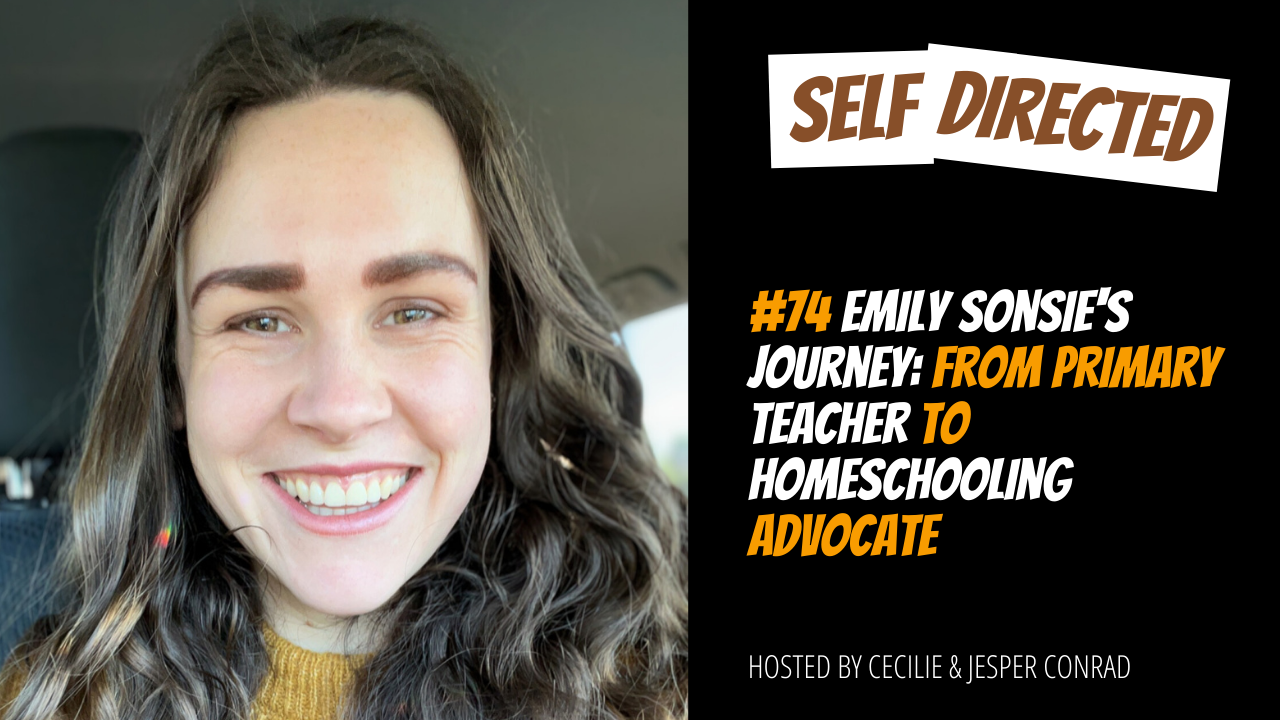
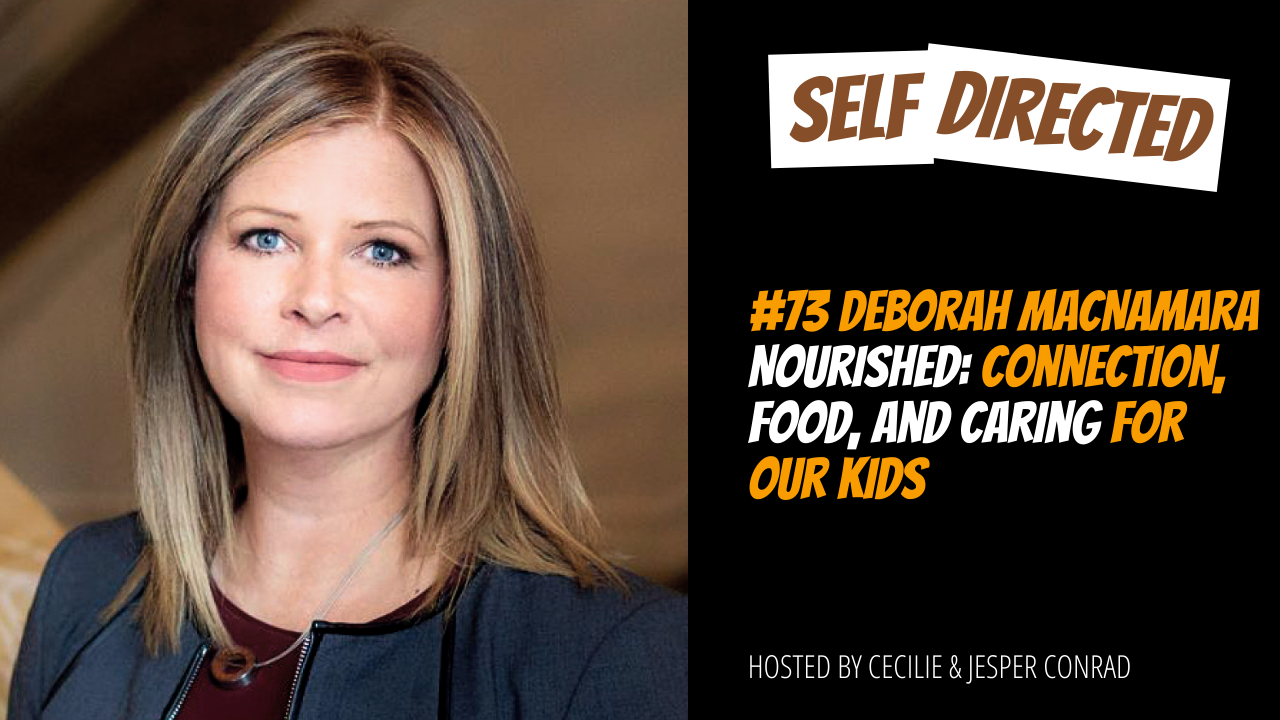
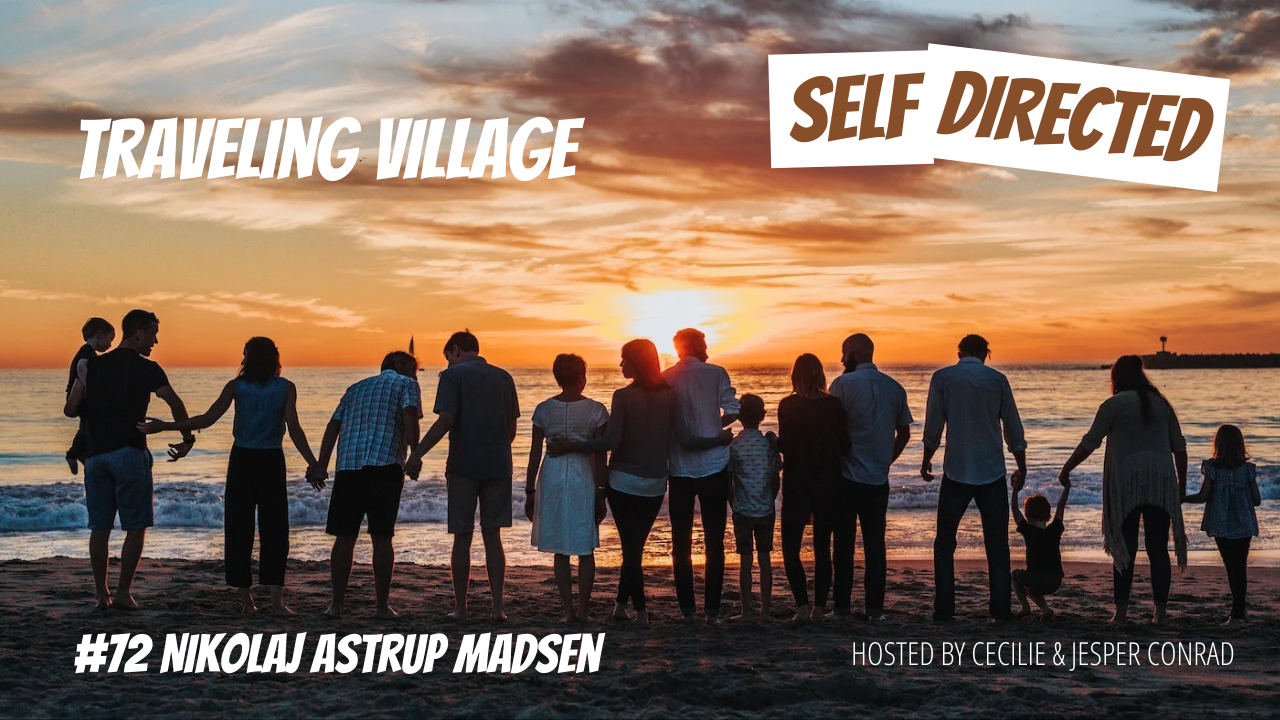
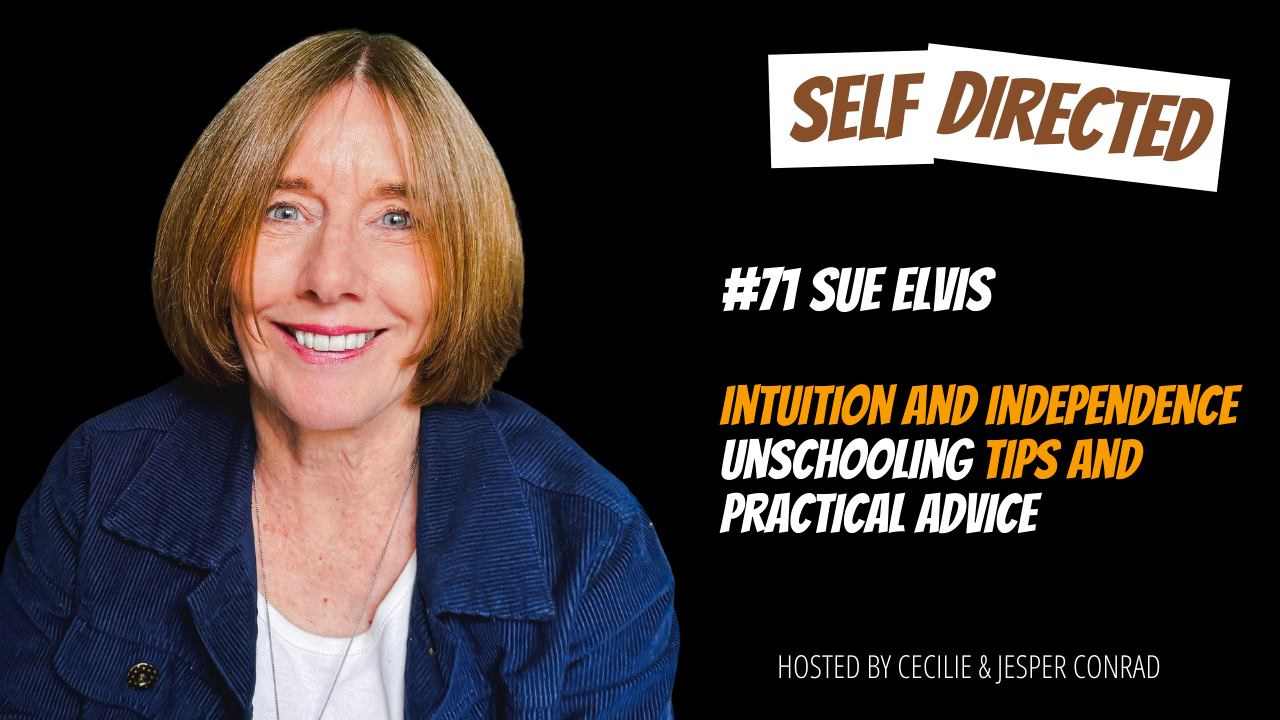
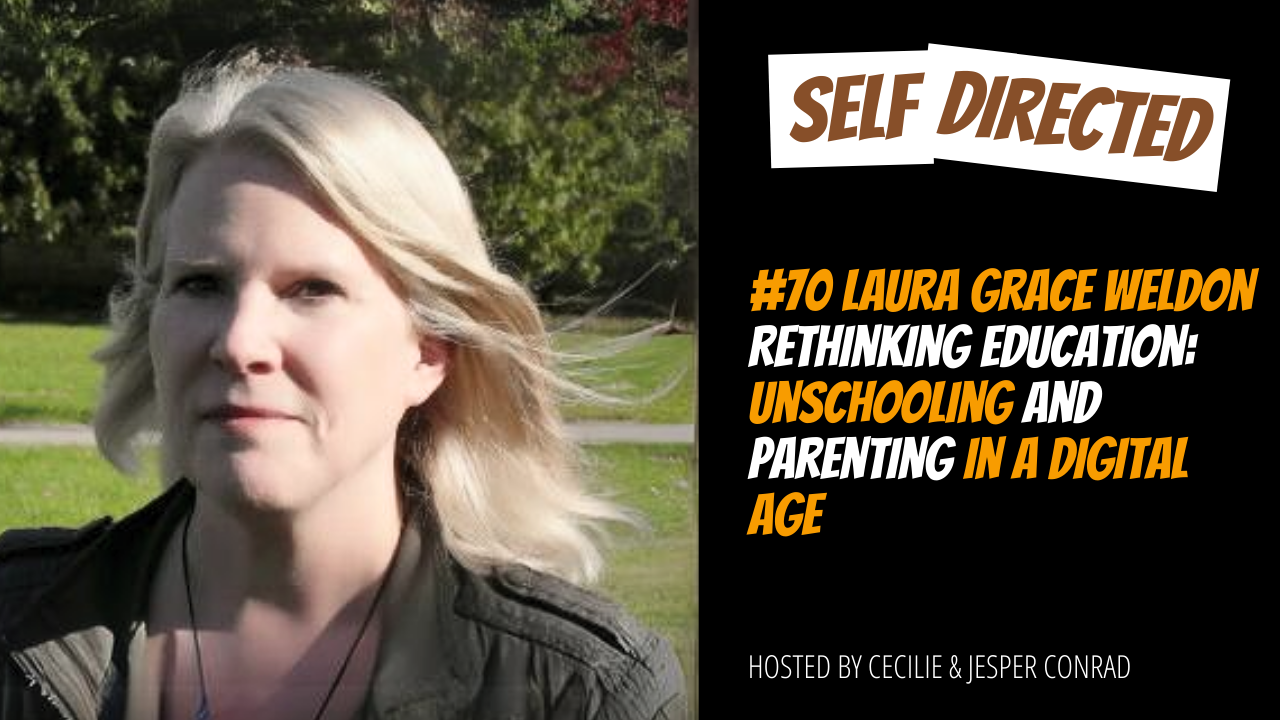
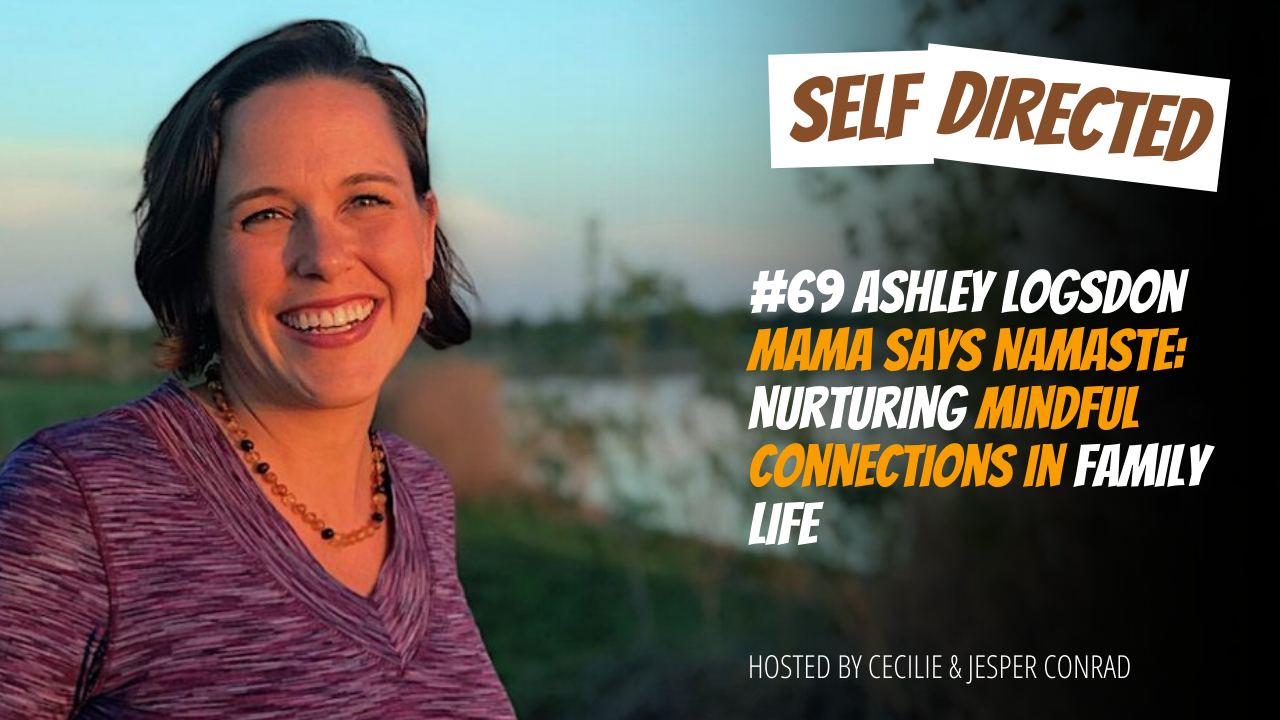
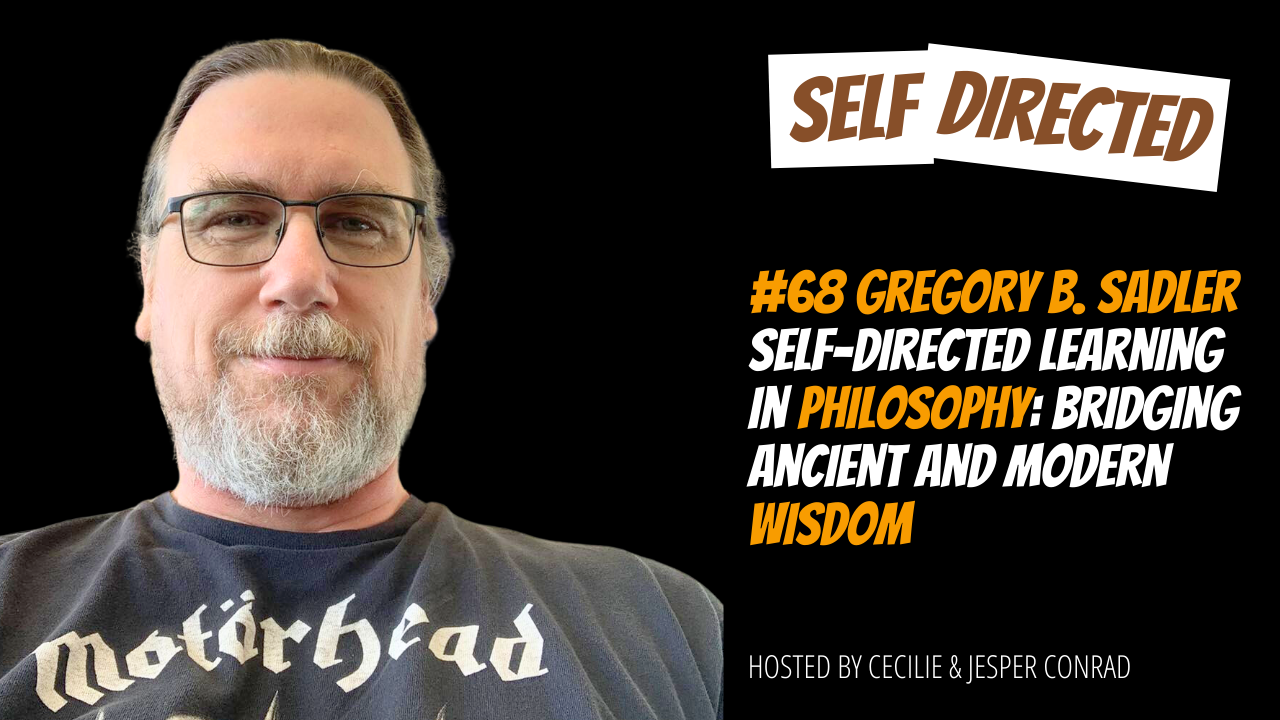
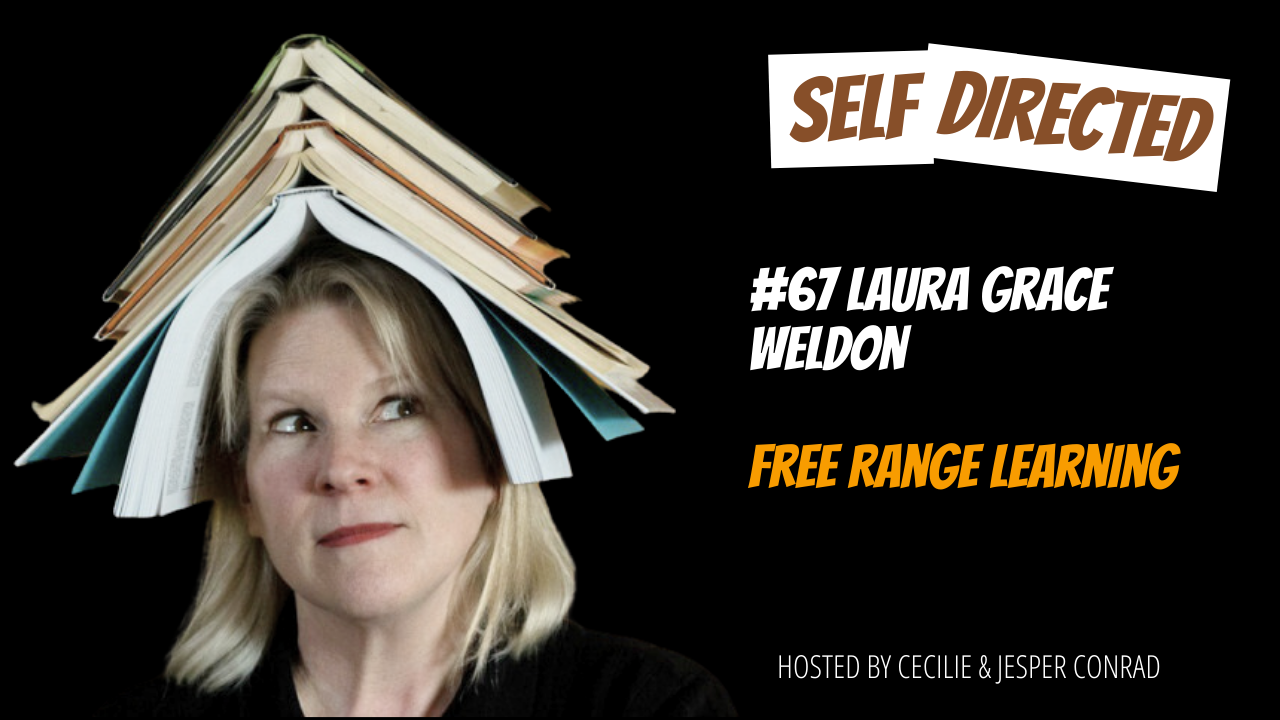
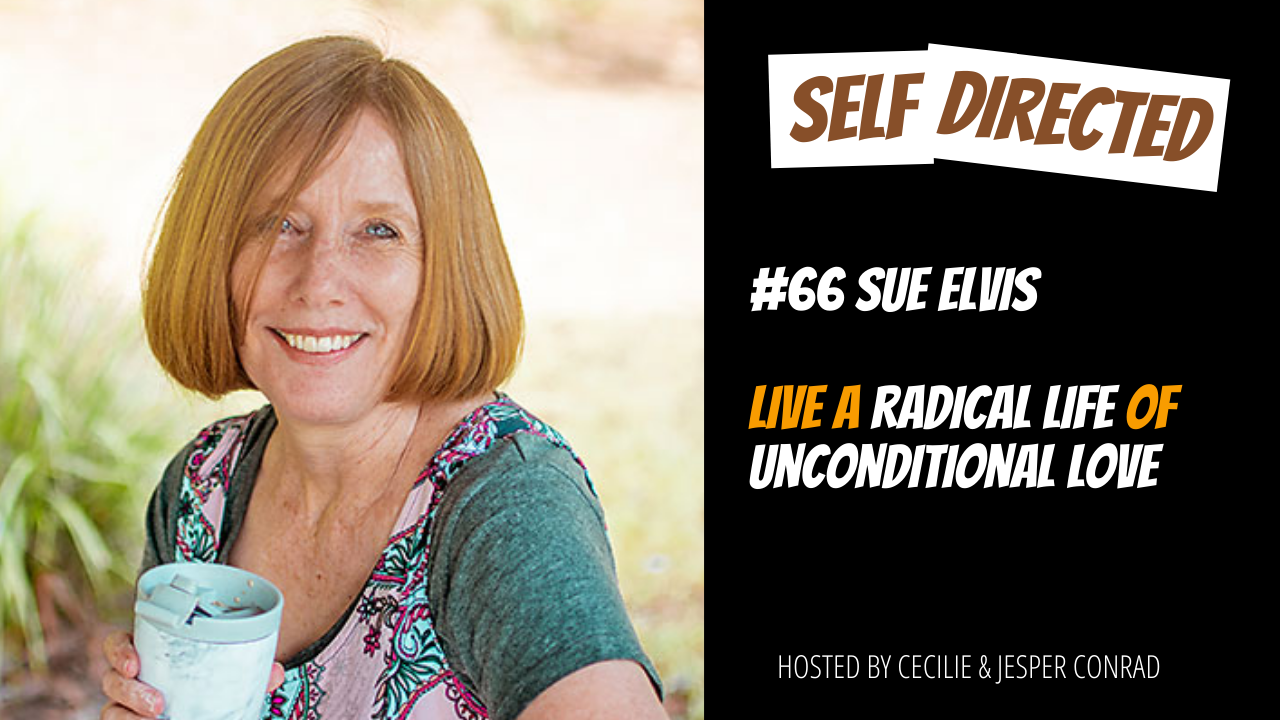
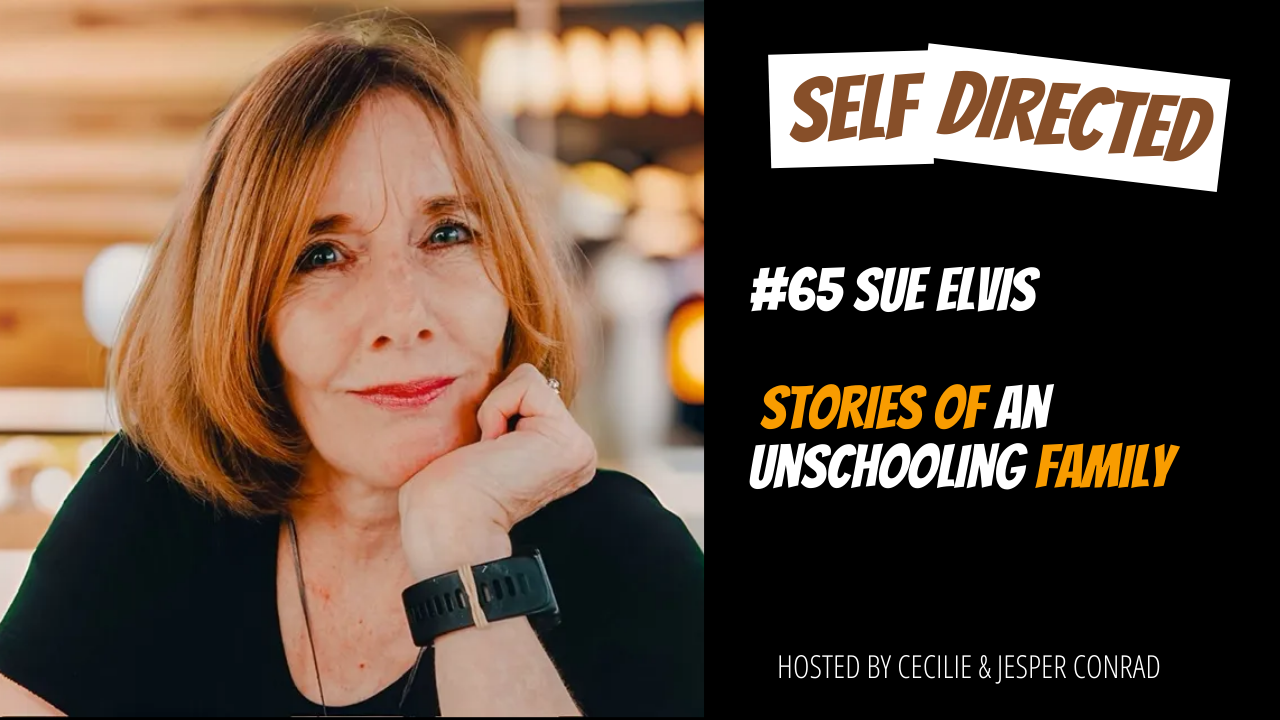
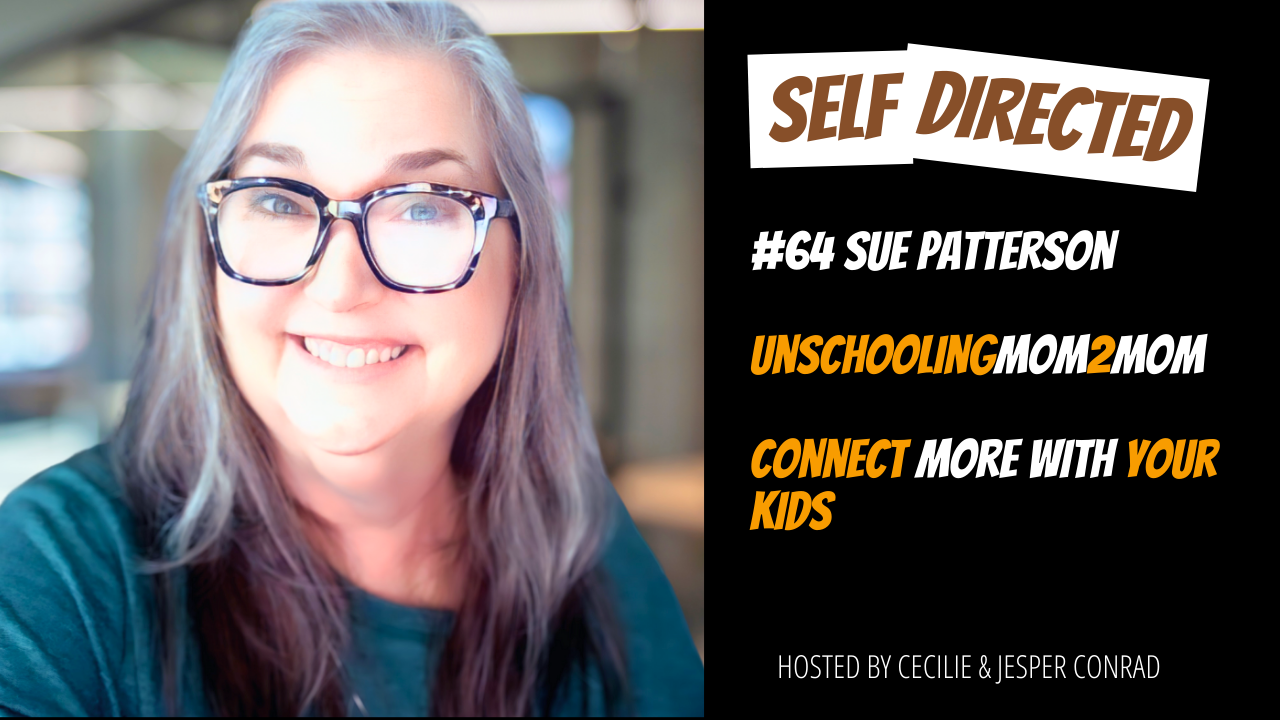
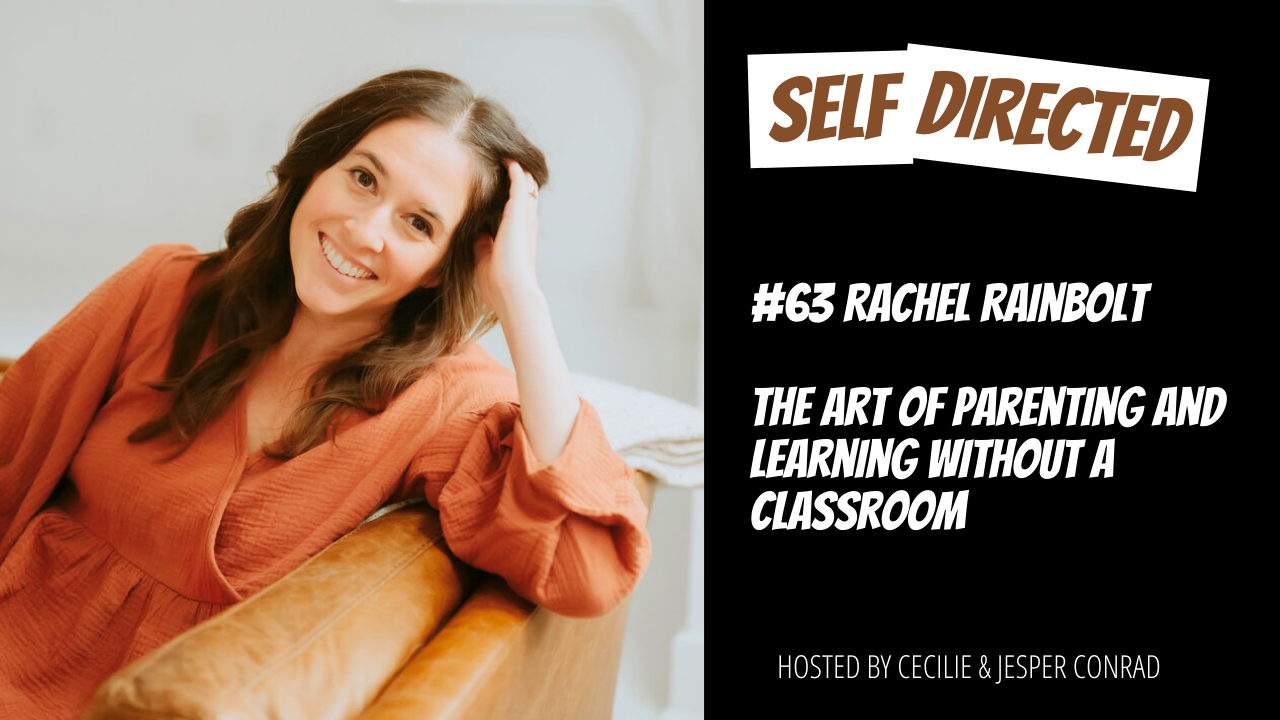



0 comments
Leave a comment
Please log in or register to post a comment